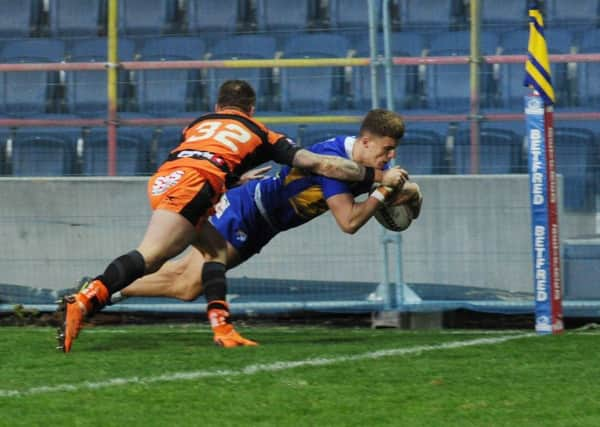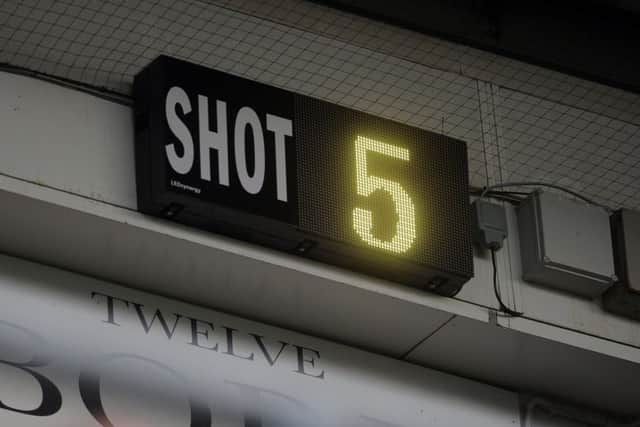Peter Smith: New rules have speeded game up but more needs to be done


With the shot clock in operation, much of the messing around at scrums and drop outs, which was becoming a common feature of rugby league, has been eliminated.
Matches in Betfred Super League which, last season, were sometimes taking more than two hours to complete are over and done with much quicker now scrums are completed in 35 seconds and drop outs in 30.
Advertisement
Hide AdAdvertisement
Hide AdThat can only be a good thing; nobody wants evening kick-offs to run past 10pm, particularly on Thursday evenings in February or March.


Credit goes to the coaches, players and referees for buying into the idea and, so far at least, working together to ensure it has achieved the desired result with no complications.
Super League has become a better spectacle for it, but there is more to be done.
It is possible to cheat within the rules and teams will always seek an advantage if there is one on offer.
Advertisement
Hide AdAdvertisement
Hide AdThe present law allows an attacking player to achieve that by throwing the ball at a defender in the ruck and numerous penalties have been won that way this season.
It should be a penalty, but not to the attacking team.
Yes, there is a desire to speed up the ruck and tacklers have to be encouraged to get out of the way as cleanly as possible, but in numerous instances they have been penalised when, realistically, they have no opportunity to do that.
The tactic of deliberately passing the ball at a defender is a cheap way to gain the ball-carrying side some cheap metres and it may be within the laws of rugby league, but certainly not the spirit of the game.
It looks awful, particularly in televised matches, but would rapidly be eliminated if the penalty went the other way.
Advertisement
Hide AdAdvertisement
Hide AdMatch officials could still take action to make sure the defender quickly gets out of the way, but the blight of what is effectively cheating would be removed.
Ultimately, rugby league is supposed to be a form of entertainment and laws need to reflect that.
There has to be a balance between attack and defence, but paying spectators – and television viewers – want to see tries and quality attacks.
Laws which prevent that, such as the obstruction rule, should be revisited.
Advertisement
Hide AdAdvertisement
Hide AdOne of the problems with the video referee system is that often those officials seem to regard finding ways to rule out tries as part of their job.
That maybe isn’t the case as much now as in past seasons, but more benefit of the doubt should be given to the attacking team.
Faster games are better to watch and reward the more talented sides and that is something the sport is moving towards, but long delays for video decisions are still breaking up play.
The best solution would be to go back to what the system was originally intended for, cutting out obvious errors at in-goal situations – and leaving the man in the middle to deal with everything else. Players will exploit the laws and there’s still a tendency for a supposedly injured player to stay on the ground long enough, in televised encounters, for video officials to pick up incidents after several replays, leading to a penalty and yellow or red card.
Advertisement
Hide AdAdvertisement
Hide AdThat’s a tricky one as usually the correct outcome is arrived at, but it also encourages play acting at times.
In rugby union, defending players are permitted to charge at a kicker as a conversion is taken.
Supposedly that’s not the case in rugby league, but one of the times when a team can be guaranteed to look keen to get on with things is when they are waiting for a kick after a try.
The only reason for that, unless perhaps it is the final moments of a close game, is to put off the kicker.
Advertisement
Hide AdAdvertisement
Hide AdIf refs allow a missed kick to be retaken when the defending team move off their line that would soon stamp it out.
Another thing which match officials could target is the habit of players patting an opponent on the head after he has made an error.
That causes more bust-ups than almost anything else, with often the player who reacts being the one to get punished.
Goading an opponent, which is what it’s all about, is unsporting behaviour and penalties would quickly cut it out.